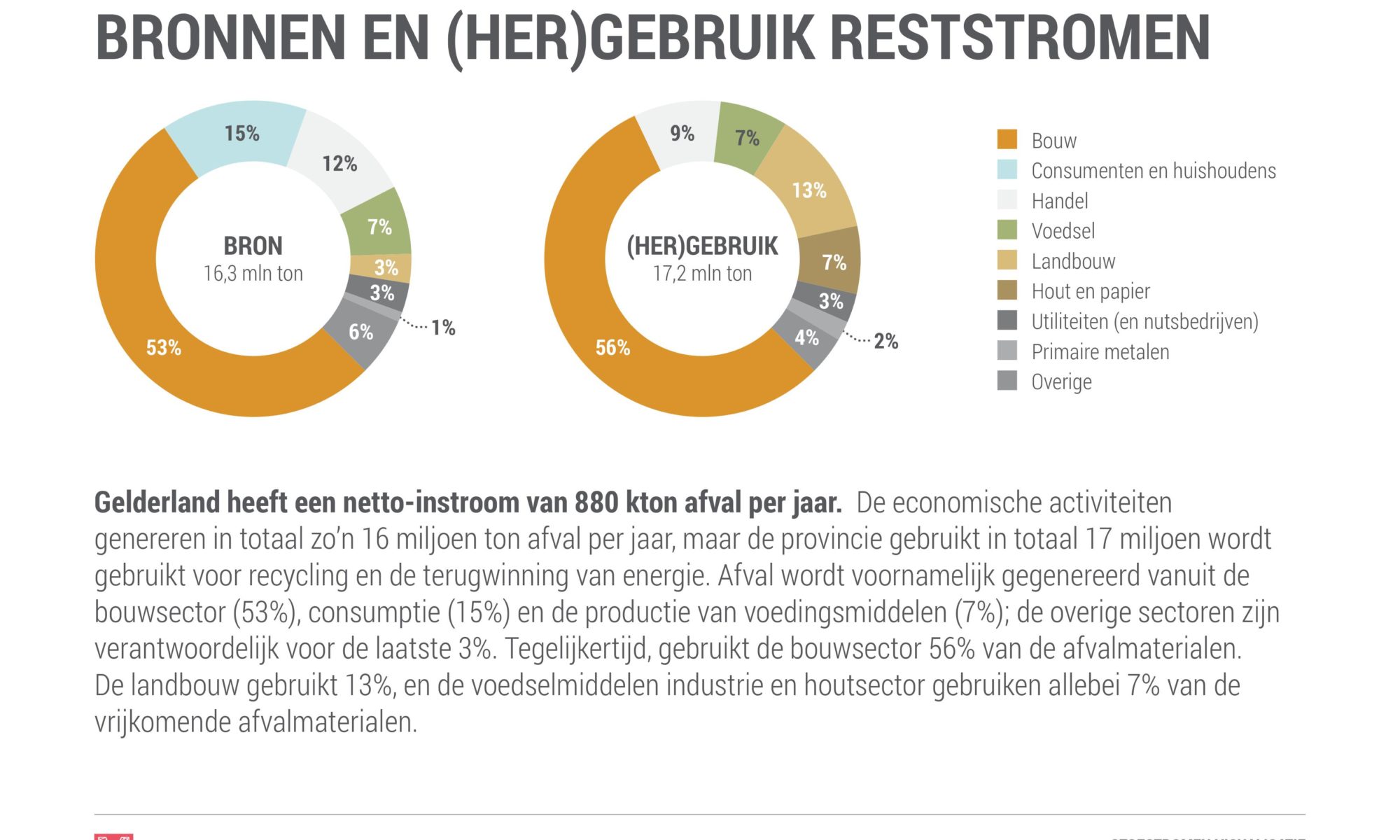Willem Huntink, Circular Economy programme manager for the province of Gelderland, was closely involved in drawing up the agenda. ‘The circular economy is unavoidable. Raw materials are becoming increasingly scarce. Throwing away or incinerating these raw materials will indeed become less attractive, from an economic and ecological viewpoint. That is why the province has set its sights on a zero waste future.’
Huntink believes that the key to this endeavour lies in the first instance on the input side. If the industry and the inhabitants use fewer raw materials, there will also be less waste. ‘Industry in Gelderland uses 44.7 million tonnes of raw materials and other materials on an annual basis. Fossil fuels (oil, gas) take up half of this, followed at a great distance by minerals (14 percent) and chemicals (9 percent). The industry uses a total of 1 million tonnes of waste as raw material. This volume can be bigger and it must grow, through the stimulation of reuse and the development of alternative raw materials, via regional chains among other things.’
Read the full article.



